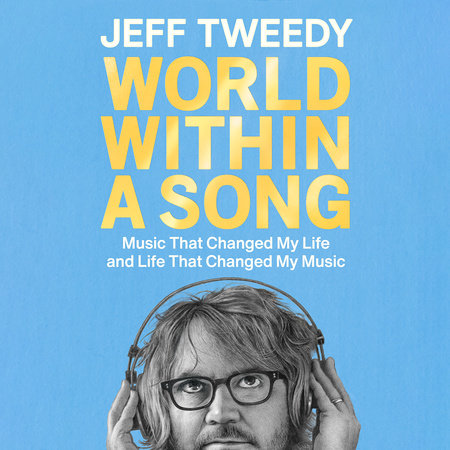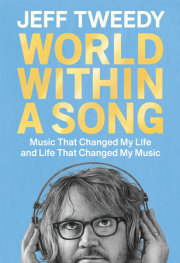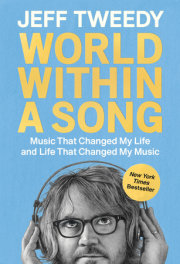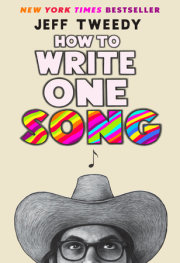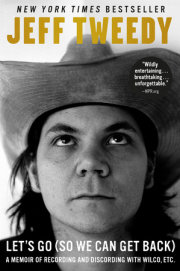1
Smoke on the Water
I'd love to claim that at the age of six, hearing the brief passage of Mozart (incorrectly identified as Rachmaninoff) performed in the movie Willy Wonka and the Chocolate Factory was the catalyst that set me on my way to a lifetime of music-making . . . or that I was somehow introduced to some Jacques Brel or Leonard Cohen by an eccentric den mother at a Cub Scout meeting and I never looked back, having immediately absorbed the nuance and depth of the wordplay and how the simple melodic arcs embrace eternity . . .
In fact, I'd much prefer to have you believe just about anything other than what truthfully made the first dent in my musical mind. That's because the truth is that it was "Smoke on the Water" by Deep Purple. It kills me to admit this for a lot of reasons. Foremost of which is the fact that as I grew older and as this song maintained an ominous loitering presence on the airwaves of St. Louis rock radio, it became more and more indefensible as something I could admit to myself that I liked.
Things were different then. Without much else to distinguish ourselves from each other as adolescents (fewer clothing options, same shoes, our moms all cut our hair), we were forced to broadcast our allegiances (jock, nerd, sosh, etc.) by the music we professed to love. By the time I was a full-blown teenager, this bong-bruised, coughed-up lung of a song had evolved, in terms of the people who liked it at the time, to signify a distinct type of danger to a sensitive boy like myself. Kind of the way some insects develop brightly colored wings to tell predators, "Trust me, you're better off not fucking with me." This song came to indicate a certain toxicity, in other words.
But alas, I cannot deny its importance to me, and countless others, as a budding musician. Because the fact is, this riff (I'm not even sure I could speak to the rest of the song considering how much I've avoided it in the nearly fifty years since my first introduction; I know it has something to do with Frank Zappa and some semiautobiographical band exploit, but to me, even if I HAD paid more attention to the words, this riff is so dunderheaded and massive it blots out the sun-hippie mumbo jumbo lyrics don't stand a chance) . . . this riff is absolutely the first thing I ever played on a guitar, back when I was seven or eight years old. This, my friends, was the "Seven Nation Army" of my day. The likelihood you could teach yourself these four notes on the bottom string of a guitar within a few minutes was very very high.
So I must bow to the rock gods. Who cares if it took a riff so demeaning and dumb to instill a little belief in myself as a potential musician. We all start somewhere. I started with "Smoke on the" goddamn "Water."
2
Long Tall Glasses
You know, not everything that ends up having a profound influence in your life is easily identified as enjoyable. In fact, I think I could safely argue that it's pretty rare for life lessons to be imparted free of concern and full of mirth. Songs, or at least most of the songs I've chosen to talk about here, are unique in that way. They really can teach with serenity, form wisdom while the mind drifts carelessly, or even shine a little light into the dark corners of a banging head.
But not always. There are still important kernels of knowledge that can only be whipped into us through discomforting experience. Take this Leo Sayer song for example. Sure, it seems pleasant enough. And taken as a single dose, I'm almost certain one would recover fairly quickly from its mild toxins. But let's take this same song and play it . . . oh . . . let's say roughly forty-five times between six p.m. and nine p.m. on weekday evenings, and upwards of seventy times a day on the weekends. Let's continue this ritual for several months and try to imagine the world-warping effect this little ditty might have on one's psyche.
If it weren't for the fact that I believe my father sincerely enjoyed such a routine, I would find it easy to subscribe to the possibility that the method behind such madness was in service to a DARPA program set up by the DOD to study the mind-altering potential inherent in repeated exposure to a single insipid storytelling pop song.
If you're unfamiliar with the song . . . first of all, CONGRATULATIONS . . . but I should give you a little outline of what its "deal" is. It's a musical tale of a man down on his luck (natch) who stumbles upon an establishment offering up food and drink to one and all. It goes on to describe said spread (which is where he unloads one of the most diabolically infuriating rhymes of all time: "There was ham and there was turkey / There was caviar / And long tall glasses / With wine up to . . . YAR"). It ambles along for a while before we get to the kicker: If he wants to partake in the bounty before him, he's gonna have to dance for it. But alas, he doesn't know how to dance, and he's sad, the music is sad, we're sad . . . but then . . . but THEN . . . Spoiler alert: Turns out he CAN dance after all.
Incredible. At this point in the song the refrain "You know I CAN'T dance" sung like a donkey doing a Bogart impression becomes "I CAN dance!" This is the moment where my beer maudlin-ed father would jump out of his chair and spill his Pabst (Extra Light) dancing and bellowing along. "I CAN DANCE!" EVERY. SINGLE. TIME.
So what did I learn from this hardship? Why am I writing about this particular song in a book designed to highlight the inspiration I've taken from the music I've consumed?
Well, I guess I'm not sure how to answer that. But I can tell you that at the time this was all happening, I was sure I was learning about things I would never do and ways that I would never be. As a musician, as a songwriter, as a father, and as a human, I guess.
Every now and then I throw this song on, and as I sit and listen, as this smug bauble of pop arcana winds its way through the paths in my mind that it's beaten down to dust, the memories of my father become so vivid I swear I can smell him. I am with him again. But this time without judgment. Only joy for his joy. Name something else in the world that can do that.
Copyright © 2023 by Jeff Tweedy. All rights reserved. No part of this excerpt may be reproduced or reprinted without permission in writing from the publisher.

